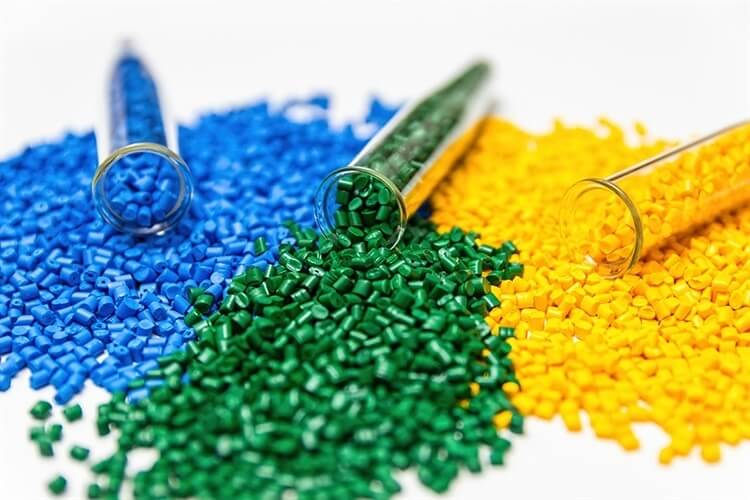Using the Power of Polymers: Recognizing the Substantial Uses and Favorable Effects
Polymers, with their diverse chemical structures and homes, have actually become vital in numerous markets, reinventing the means we communicate with products on a daily basis. As we check out the comprehensive usages of polymers and their role in shaping a much more lasting, reliable, and cutting-edge future, it becomes apparent that their capacity is as huge as the particles themselves.
Convenience in Everyday Products
One of the most usual uses of polymers is in packaging materials. In addition, polymers play a critical function in the automobile industry, where they are made use of in producing lightweight parts that boost fuel efficiency.
Biodegradable polymers are used in sutures and implants, reducing the risk of unfavorable reactions in patients. In the construction market, polymers are incorporated into paints, adhesives, and insulation materials, boosting durability and energy performance.
Sustainability in Product Innovations
With the ongoing emphasis on ecological awareness and source effectiveness, the emphasis shifts towards sustainability in product developments, reflecting an expanding commitment to liable production practices throughout different sectors. Over the last few years, there has been a significant surge in the growth of sustainable materials, especially within the world of polymers. These ingenious products are created to minimize ecological effect throughout their whole lifecycle-- from sourcing resources to disposal or recycling.
One considerable element of sustainability in material advancements is the principle of biodegradability. Naturally degradable polymers have gathered focus for their capability to damage down normally into safe by-products, minimizing waste and air pollution. In addition, making use of recycled polymers originated from post-consumer or post-industrial sources is obtaining traction as a means of promoting a round economic climate and minimizing reliance on virgin products.

Enhancing Performance in Engineering
Enhancing efficiency in engineering calls for a careful assimilation of sophisticated modern technologies and precise approaches to optimize functionality and performance in different commercial applications. Polymers play a crucial role in this venture, supplying a large range of benefits that improve the performance of engineering products and components.
One key aspect of improving efficiency in engineering is the ability of polymers to enhance sturdiness and strength. By including polymers right into design designs, manufacturers can produce lightweight yet robust frameworks that can stand up to high levels of tension and pressure. This characteristic is particularly beneficial in industries such as aerospace, auto, and building, where the need for solid yet lightweight products is critical.
In addition, polymers can additionally enhance efficiency by giving thermal and chemical resistance, decreasing rubbing, and enhancing electric conductivity. These properties make polymers perfect for a vast array of design applications, useful site including seals, bearings, finishes, and digital elements. Polymers. By using the distinct residential or commercial properties of polymers, engineers can maximize the efficiency of their designs and produce much more efficient and webpage reputable products
Effect on Medical Improvements
The combination of innovative polymer technologies has considerably added to revolutionary innovations in the clinical field. Polymers have played an essential duty in modern-day medical innovations, varying from drug shipment systems to cells design. Among the crucial locations where polymers have made a substantial influence is in the advancement of naturally degradable stitches and implants. These polymers can be tailored to degrade at a particular rate, permitting far better injury recovery and lowering the requirement for extra surgeries to remove implants.
In addition, polymer-based products are increasingly being utilized in medical devices such as catheters, stents, and prosthetics due to their biocompatibility and flexibility. For instance, polymer coverings on clinical gadgets can protect against infections and enhance general patient outcomes. Additionally, improvements in nanomedicine have actually made it possible for the use of polymer nanoparticles for targeted drug delivery, enhancing the effectiveness and decreasing negative effects of different medications
Role in Environmental Preservation

In useful content addition, polymers are made use of in water treatment processes, aiding in the filtration and recycling of water sources. This aids in lowering water contamination and guaranteeing accessibility to clean water for both human usage and environmental wellness. Polymers likewise contribute in agriculture with the development of naturally degradable composts and controlled-release plant foods, promoting sustainable farming techniques.
Verdict
Finally, polymers have proven to be a functional and important product in different markets, from everyday items to engineering and medical advancements. Their influence on sustainability, performance improvement, and ecological conservation is substantial. Comprehending the extensive usages of polymers emphasizes their importance in driving development and progression in several areas. The ongoing expedition and usage of polymers will unquestionably cause additional innovations and favorable influences on culture.